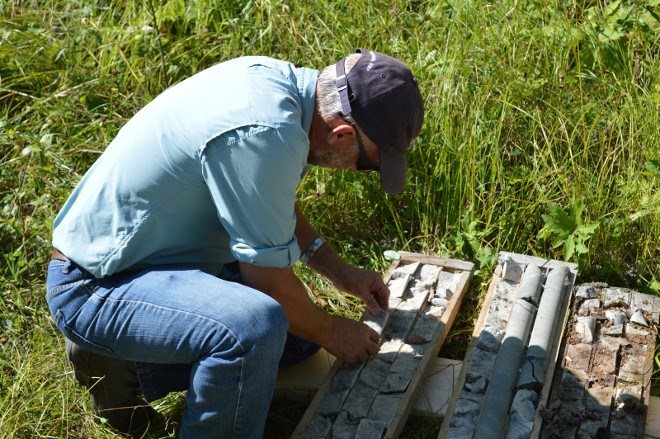A mine developer with a northwestern Ontario lithium deposit has found a production partner in Australia.
Avalon Advanced Materials has signed a non-binding letter of intent with Lepidico of Perth, Australia.
Under the agreement, Avalon would sell Lepidico a minimum of 15,000 tonnes a year of concentrate produced from its planned demonstration-scale pilot plant near Kenora.
Avalon announced on Feb. 6 that lab work of some lithium mica (lepidolite) samples taken from its Separation Rapids deposit near Kenora confirms there is the potential to recover a very high-grade lithium carbonate product used to make lithium-ion batteries.
Avalon said the results confirm that a 99.88 per cent pure lithium carbonate product can be made from the material mined at their deposit, 75 kilometres north of Kenora.
The concentrate would be processed by Lepidico at its proposed commercial lithium carbonate production facility which would be located “near large consumers of lithium battery materials.”
Both companies have tentative plans to start construction of their respective processing plants sometime in 2018.
Lepidico has a patented hydrometallurgical technology, known as the L-Max process, which allows for the extraction and recovery of lithium from lithium-bearing micas such as lepidolite.
Avalon believes Separation Rapids can be a major source of supply for the growing demand for batteries for electric vehicles.
“We are pleased to have identified a second opportunity to recover a lithium battery material from the Separation Rapids deposit,” said Avalon president Don Bubar, “in addition to the lithium hydroxide product that can be recovered from the known petalite resource as documented in the company’s recent preliminary economic assessment.
“This gives us potential to increase the recoverable lithium resources in the deposit and serve more markets with our lithium products, as well as other potential by-products such as rubidium and cesium.”
In the meantime, Avalon is drilling this month to test eastern extensions of its Separation Rapids deposit and expand the mineral resource.
The company released a positive preliminary economic assessment last September envisioning a $514-million open-pit mine which would have average annual production of 14,600 tonnes of lithium hydroxide for a mine life of 10 years, and 100,000 tonnes of feldspar mineral concentrate for 20 years.
Avalon’s development model also calls for a concentrator to be located on the company’s mining lease where ore would be crushed and processed at the mine site and the resulting petalite concentrate would be trucked to a proposed hydrometallurgical plant near Kenora.




